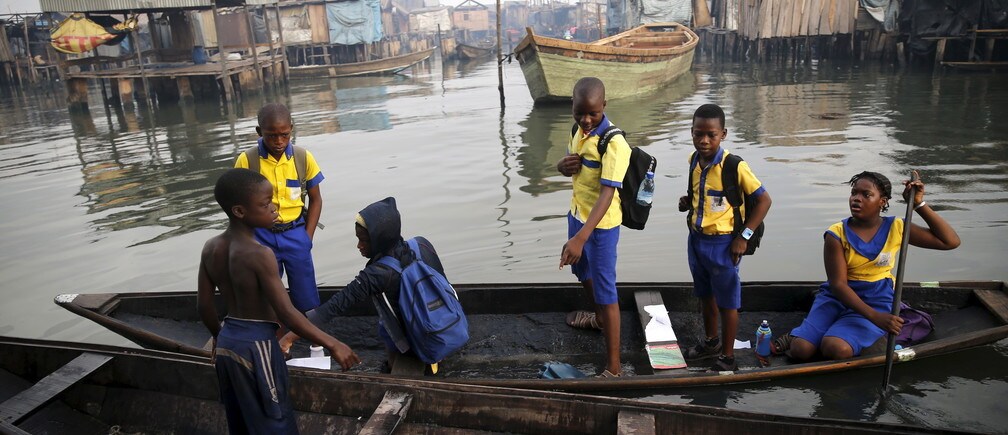Digital literacy and cardboard computers: the view from Tanzania

In Arusha, learning isn't restricted to age. Everyone from farmers to nursing mamas want their chance
Image: REUTERS/Akintunde Akinleye
Stay up to date:
The Digital Economy
As I drove out to Jifundishe Library and Computer Lab in a village on the outskirts of Arusha city, nothing had prepared me for what was ahead.
Sometimes the human mind makes assumptions and they maybe clouded, crowded or just full of errors, as in this case. My typical learners as I would expect for Shule Direct would be Secondary School students, usually teenagers, full of raging hormones in need of taming to settle down to study. But this free-for-all library was different, it had people from all walks of life: children, millennials, older men, mamas (even nursing mamas) and, of course, secondary-school students, brought together in pursuit of knowledge.
They had a common goal, to learn.
Learning was not restricted to age, that you must be school-going, or a professional; that it is part of your company’s human resources department; learning was fluid and in answer to human needs. A farmer had gone to learn how to operate his mobile money account on his simple feature phone.
Most of the learners, however, were adults taking Qualifying Tests to get a Secondary School Education certificate that they had missed out early on in life. They were here to grab their chance, in many cases the first chance they’d ever had, and were more dedicated than ever.
Our task was to alert people to the usefulness of their computer lab. We knew why it was not used and we knew how to ignite that interest. To many people a computer might as well be a cardboard box, unless they know what it can do and how it can add value to their lives. Once a farmer is able to make transactions through his mobile phone – whether for sales or to buy better seeds – his improved yields won’t be down to the fact he owns a phone so much as because he could make use of the opportunities it provided.
If content is said to be king, then maybe context is the kingdom, the environment that allows the right content to flourish or diminish.
From our experience at Shule Direct, tech is not just efficient but also cost-effective, and a far better deal for money than going without. The entire online secondary school curriculum can be accessed at less than a US dollar per student for a whole academic year, in comparison to the $162 it costs to purchase a minimum number of textbooks for the same student per year.
These students are not only availing themselves of a better education but honing their digital skills and becoming content creators rather than just content consumers. They’re also broadening their horizons, learning to be not just community members but also global citizens.
Affordable education and affordable opportunities are some of the promises that we can say are being delivered today, in some parts of the world, under this year’s International Literacy Day theme, Literacy in a Digital World. After all, quality education is not a privilege but a right for every person, anywhere and anytime.
Don't miss any update on this topic
Create a free account and access your personalized content collection with our latest publications and analyses.
License and Republishing
World Economic Forum articles may be republished in accordance with the Creative Commons Attribution-NonCommercial-NoDerivatives 4.0 International Public License, and in accordance with our Terms of Use.
The views expressed in this article are those of the author alone and not the World Economic Forum.
Forum Stories newsletter
Bringing you weekly curated insights and analysis on the global issues that matter.
More on Education and SkillsSee all
Anurag Sinha
May 9, 2025
Navi Radjou
May 8, 2025
Rachmat Pambudy
May 1, 2025
Shuvasish Sharma and Ximena Játiva
May 1, 2025
Ricky Li and Ximena Játiva
May 1, 2025




